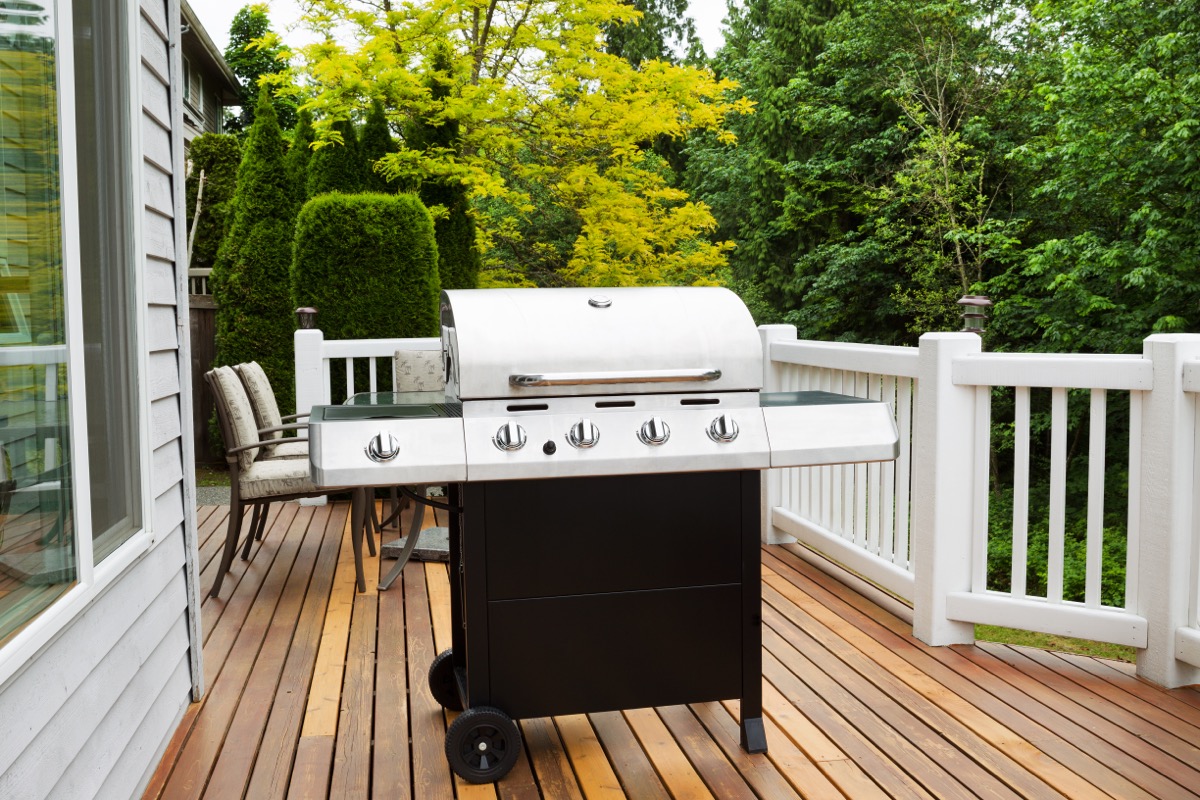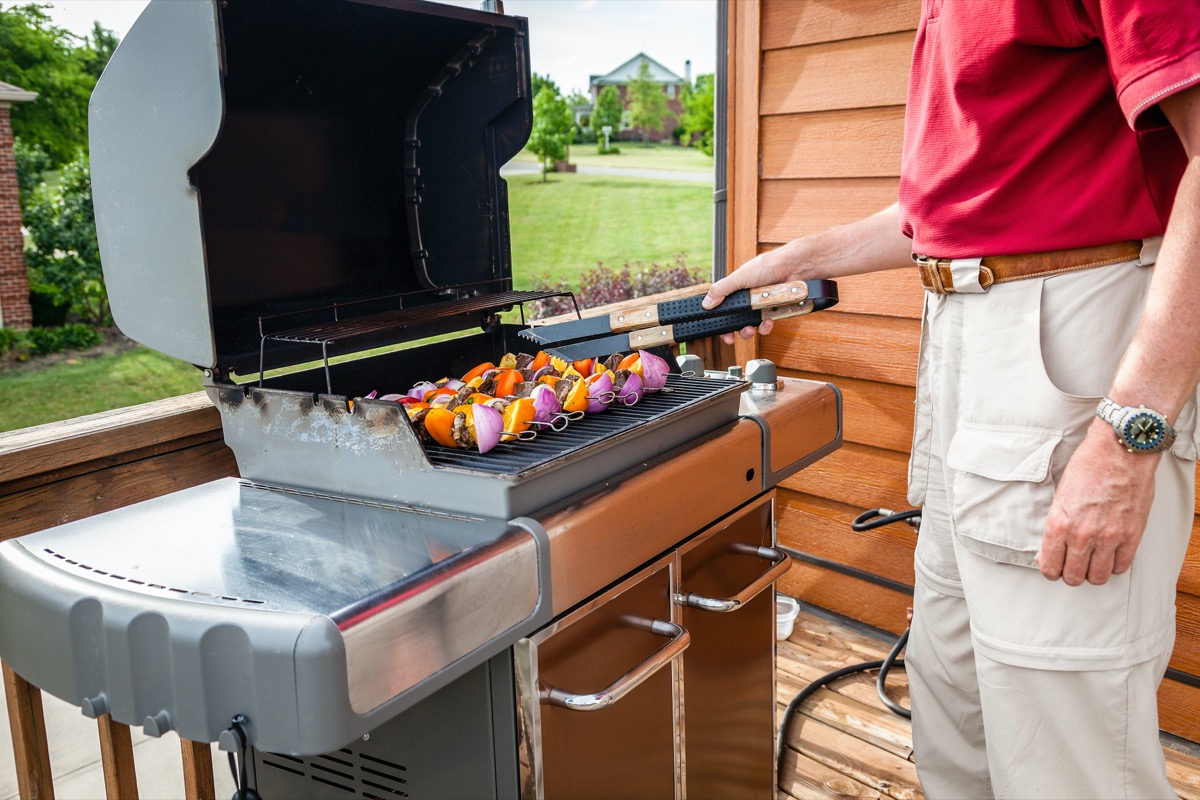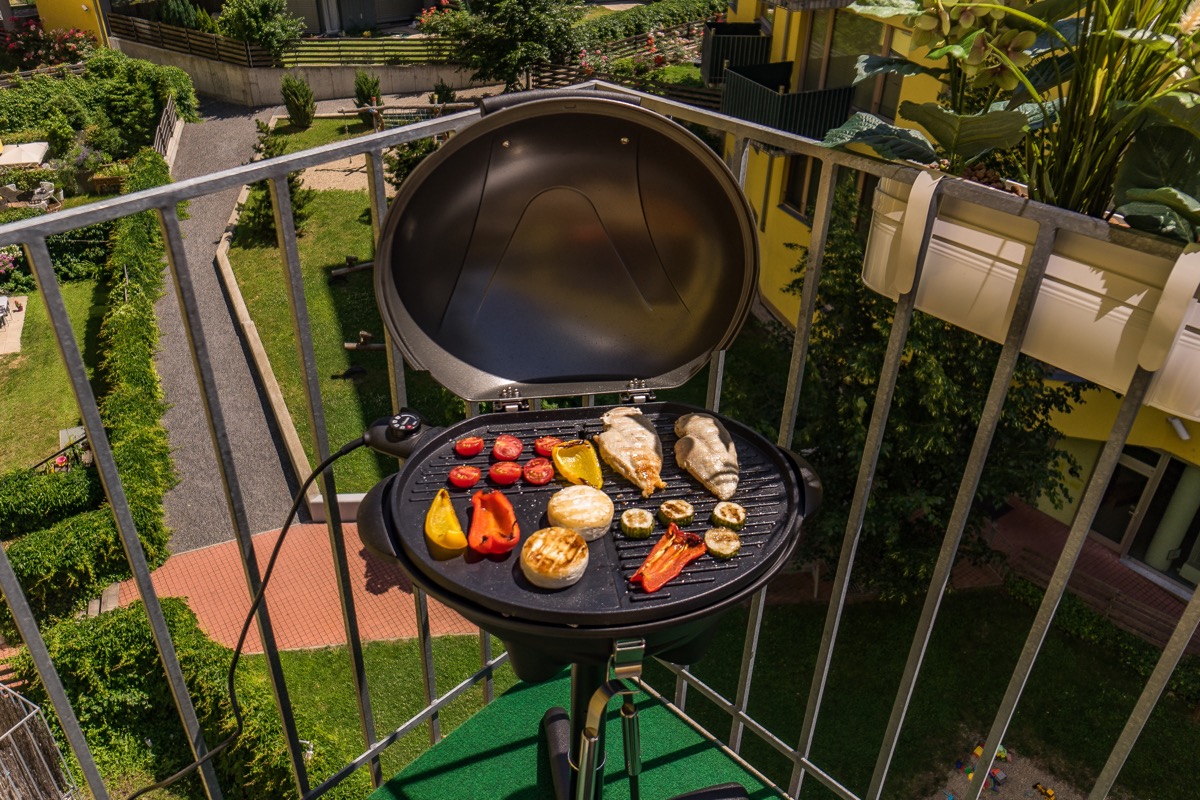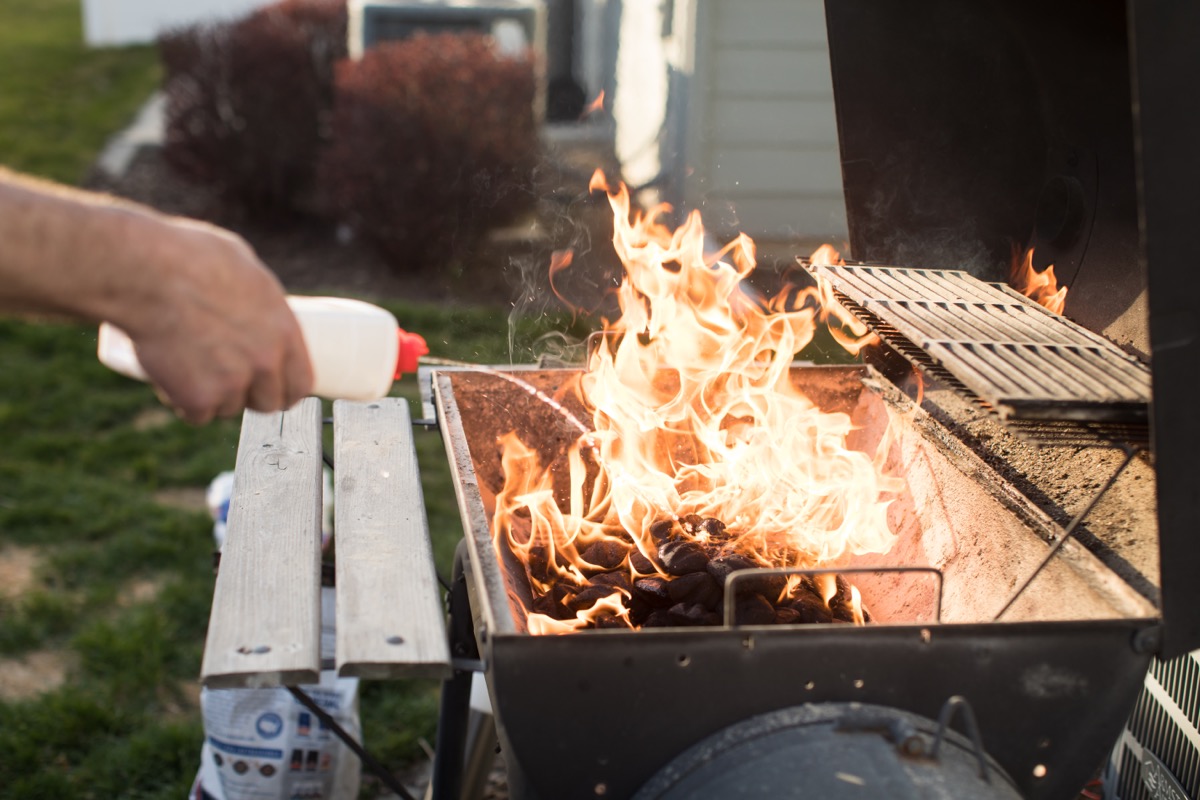Before you tie on that apron and break out the tongs, read on to discover the one place experts say you should never put your grill. RELATED: If You See This in a Hot Tub, Don’t Go In, Experts Say. While your deck may seem like the perfect place to put your grill and keep it away from your kids or pets, doing so may be more dangerous than you think. According to Seacoastonline, a recent fire in Hampton, New Hampshire, which destroyed a deck, cottage, and made the adjacent home uninhabitable, was attributed to residents of the home grilling on their wooden deck. Michael McMahon, the town’s acting fire chief, noted that grills should not be placed on wooden decks, as the wood below them can easily ignite, causing a quick-spreading fire. For the latest home safety news delivered straight to your inbox, sign up for our daily newsletter! It’s not wooden decks alone that present a risk for grillers—there are safety concerns associated with grilling on a deck of any material, depending on where the grill is located in proximity to other flammable items. The National Fire Protection Association (NFPA) recommends keeping grills of all types away from deck railings, eaves, and tree branches, as they can overheat and catch fire.ae0fcc31ae342fd3a1346ebb1f342fcb To play it safe, the authority recommends placing your grill at least 10 feet away from your home to avoid the risk of a fire. Even if the balcony off your apartment is made of concrete or brick and you have room to keep your grill away from its railings, the NFPA says that grilling on overhanging portions of a multi-unit building is still too dangerous due to the proximity of other homes. According to the NFPA, between 2014 and 2018, there were approximately 8,900 home fires related to grills, barbecues, and hibachis, with approximately 19,700 people visiting the ER on an annual basis due to grill-related injuries. It’s not just where you place your grill that can increase your risk of a home fire. The NFPA recommends making sure gas grill lids are open before lighting them, using only charcoal starter fluid on charcoal grills, never adding accelerant to an already-lit grill, and properly cleaning your grill of fat and other debris between uses to reduce the risk of a grease fire. And while it may seem tricky to find the perfect spot to place your grill if your outdoor space is limited, the Consumer Product Safety Commission (CPSC) cautions against bringing charcoal grills inside, as doing so can put you at risk for carbon monoxide poisoning. RELATED: If You See This at a Barbecue, Don’t Eat It, USDA Says in New Warning.



